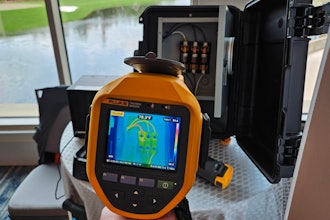BRUSSELS, Belgium (AP) -- European Union nations raised doubts Thursday whether a planned European "Blue Card" workers visa program would be effective enough to lure much needed skilled labor to Europe.
German Interior Minister Wolfgang Schaueble said the plan, if agreed to by EU interior and immigration ministers, would do little to attract much-saught-after doctors, nurses, engineers or plumbers to the 27-nation bloc.
The aim of the plan is to offer those skilled workers a single multi-year visa to work and move freely in the EU similar to the U.S.-style "Green Card" workers permit, through a "one-stop-shop" visa application.
However original plan has been watered down to get an agreement among all 27 EU nations.
The bill on offer is a first attempt by the EU to jointly regulate legal migration, powers over which many EU nations are loathe to share with their European counterparts.
"The expectations towards the Blue Card have always been exaggerated," Schaueble said. "It is the member states who have the responsibility for the job markets and the Blue Card will not change that. It shouldn't either."
The EU ministers were seeking agreement on how they should set a common definition as to who would qualify for the special visa.
The Czech Republic, Sweden and Hungary also raised concerns that those let in under the visa could lead to labor unrest with local unions, because those with a Blue Card visa would be offered wages 1.5 times more than the average gross annual salary in the country they will work in.
Ireland, Denmark and Britain were opting out of the plan, preferring to handle such immigration issues themselves.
It remains unclear how much paper work an applicant will have to fill out to get the visa. A major goal of the plan is to do away with cumbersome and complex national procedures to get residence and work permits.
EU officials say a single EU-wide system is needed to ensure the continent is able to compete with its economic competitors like the United States, Canada or Australia. The three countries use special work permits to attract highly skilled labor to fill shortages.
"The principle is to promote the movement of highly skilled workers," said French Immigration Minister Brice Hortefeux, who was chairing Thursday's talks.
The measure, which France, as EU president, wants adopted by the end of the year, would seek to lure hundreds of thousands of professionals from across Asia, Africa and Latin America to work and live in the EU, under a fast-track visa which should be processed between 30 and 90 days.
The work visa would be valid for between one and four years, but would be renewable for the length of the work contract. Those who get the "Blue Card" would have the right to social and other employment benefits enjoyed by EU citizens and would, after an initial two-year freeze, be able to move to another EU state if they find a job there.
It would be left up to national authorities to decide how many EU work visas to issue under the plan.
EU officials have called for the new visa urgently, arguing the union's working-age population will shrink by more than 50 million by 2050, and only a steady influx of newcomers will offset the impact of low birth rates and a graying population.






















